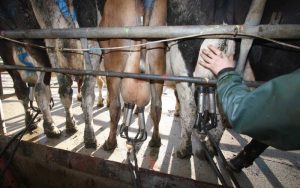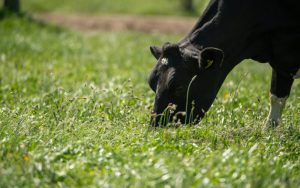
Free market flaws? Discover why New Zealanders face high dairy costs while their own produce feeds the world.
New Zealanders are facing surprisingly high prices for their own domestically produced dairy products, a phenomenon the article attributes to a critical oversight by “free market defenders.” The core argument posits that the nation’s dairy industry, particularly through the powerful Fonterra cooperative, operates on a global free market dynamic. This means that New Zealand consumers are effectively competing with the vast, growing international market, most notably the burgeoning middle class in China, for access to their own country’s dairy output.
The article explains that Fonterra, a dairy behemoth, was specifically established to maximize price negotiations on the global stage. While this strategy has undoubtedly been successful in securing premium prices for New Zealand’s dairy exports worldwide, an unintended consequence is that it forces domestic consumers to pay prices dictated by this highly competitive international demand. This scenario places New Zealand households in direct competition with a population far exceeding their own, driving up local costs for essential dairy products like butter.
Beyond the economic intricacies of global trade, the author also highlights the significant environmental cost associated with producing these dairy goods. Intensive farming practices, necessary to meet massive export demands, carry an ecological footprint. The article provocatively questions why New Zealand citizens should bear the burden of high domestic prices for products manufactured in their own backyard, especially when considering the associated environmental impact and the nation’s climate goals.
The piece critiques the existing system, suggesting that the current free market approach prioritizes export maximization over domestic affordability. This raises pertinent questions for dairy economics regarding national food security and consumer welfare in major exporting nations. It prompts a debate about whether a country should ensure its own citizens have privileged access to locally produced staples before engaging fully in global trade.
Ultimately, the article advocates for a fundamental shift in approach. It proposes a system where New Zealanders would have first access to their own agricultural produce, including dairy, at domestic prices. Only after satisfying national demand at equitable rates would the remaining surplus then be offered to the international market. This model aims to balance the benefits of global trade with the imperative of ensuring affordable access to food for the domestic population.
Source: The Daily Blog: What free market defenders of high-priced butter always miss about NZ
You can now read the most important #news on #eDairyNews #Whatsapp channels!!!
🇺🇸 eDairy News INGLÊS: https://whatsapp.com/channel/0029VaKsjzGDTkJyIN6hcP1K























